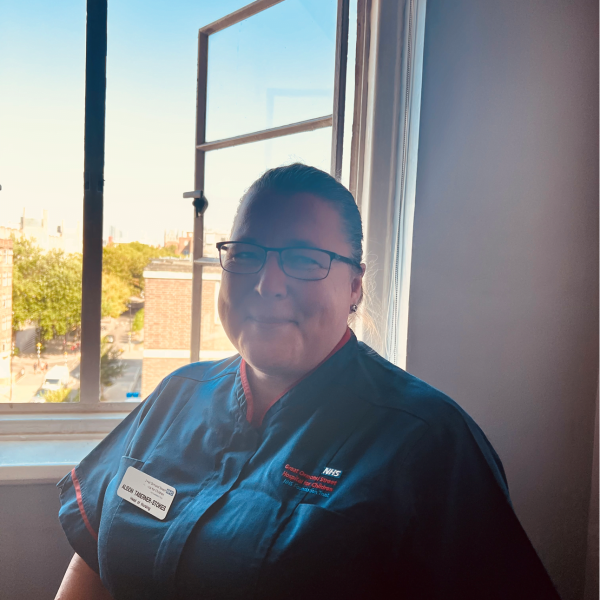Great Ormond Street Hospital sees more than 76,000 children each year. Although only a small percentage are military children, the hospital recognises the importance of supporting service families. We asked Alison Taberner-Stokes, Head of Nursing and Patient Experience, why she thinks its so important to support military children in hospital. She also told us about a special Armed Forces Day event the hospital hosted for all its families.
Why do you think it’s important for healthcare settings to know if a child has a parent serving in the Armed Forces?
Military children and young people have a different level of resilience to their peers. They have often experienced more change than anyone else, whether that’s through postings, deployment or schooling. So it’s important that our team show an interest in children’s lives and recognise how their life at home might impact on their experience in hospital.
How do you know if a child is from a forces family?
We have an electronic patient system which has a question asking families if they are part of the Armed Forces community. We would always encourage forces families to say ‘yes’ on the form, even if they are living unaccompanied from their serving person.
What additional support do you put in place / what additional support do you think is needed for service families?
We are in the early stages of ensuring our staff have the right resources at their fingertips to support service families. We have created a page on our Trust intranet with links to charities like Little Troopers and also general information around service families. This helps our play team to engage with families at the bedside about their military life.
How does the support required differ by the age of the child?
Age doesn’t really matter to us, as no two children are the same. We are guided by the families and our play therapy team provide personalised support to each child depending on their level of understanding.
Can you tell us more about your Armed Forces Day event this year?
We wanted to show our support for the Armed Forces community, both from a patient and families perspective but also from a staff perspective – whether they are a reservist, veteran or spouse. Armed Forces Day seemed the perfect time to do this.
On the day we had soldiers on site in uniform, a visit from a Chelsea Pensioner and the Help for Heroes Bear and Little Troopers sent us some print-outs and goodies to share with the children. We set up a table for activities where the children could design a medal, build a spitfire plane or write a letter to someone in the Armed Forces. We had dress up uniforms for our children and young people. We also decorated the area with banners, bunting and camouflage netting to create areas for play. This was our first Armed Forces Day celebration and we hope that there will be many more in years to come.
What was the feedback from families?
The feedback from the families was exceedingly positive, including civilian families who wanted to thank those who served. Our military families commented how it was great to see the Armed Forces being recognised in Hospital.
What advice you’d give to other healthcare professionals who would like to better support military children?
Do it! Showing families you recognise and understand their personal experiences will always make a big difference. Not only will it bring a smile to their face but it can also potentially increase recovery time.







